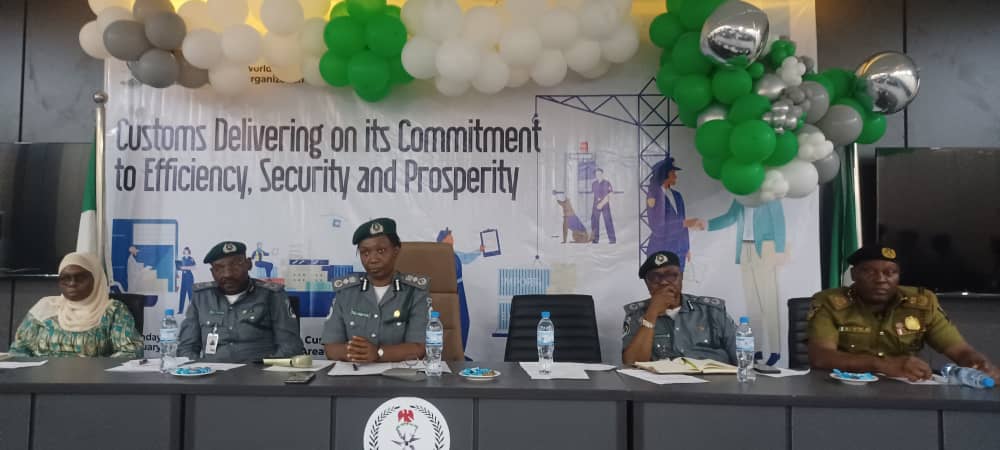The Apapa Area Command of the Nigeria Customs Service (NCS) has sensitised shipping lines, shipping companies, and clearing agents on the implementation of the B’Odogwu system, a key component of the NCS’s Modernisation Project aimed at automating and streamlining trade processes.
B’Odogwu is an advanced digital customs platform designed to replace outdated systems such as NICIS II by automating cargo manifest processing, improving clearance efficiency, and enhancing trade facilitation.
The system was first deployed in October 2024 at the Port and Terminal Multipurpose Limited (PTML), marking a shift towards full automation, with its first Single Goods Declaration (SGD) and assessment number generated in November 2024.
Speaking at the sensitisation event on Thursday, Kikelomo Adeola, Deputy Comptroller General of Customs in charge of ICT Modernisation, explained that the Customs Modernisation Project, which was approved in May 2022 and ratified in April 2023, was established as a 20-year public-private partnership to tackle smuggling, duty evasion, and inefficiencies in customs administration.
She noted that the project would deliver a unified customs management system, an electronic cargo tracking system, non-intrusive inspection scanners, a risk control centre, infrastructure upgrades, intelligent gates, data centres, and comprehensive training programmes for customs personnel and stakeholders.
Adeola emphasised that shipping lines and airlines play a crucial role in automating cargo manifest processes, which will now be fully integrated into the B’Odogwu system.
She added that the necessary infrastructure for the system has already been established at Apapa and Tin Can Island ports, with full deployment and scanner installations expected in the second quarter of the year.
Dr Jummai Ajijola, Managing Director of the Trade Modernisation Project (TMP), reiterated that stakeholder collaboration is essential to the success of the modernisation efforts. She explained that while the concessionaires are responsible for 20 per cent of the project execution, 80 per cent of the work falls on stakeholders, including clearing agents and shipping operators.
She further disclosed that the 20-year concession agreement includes a $2.2 billion investment to modernise customs operations, a financial undertaking that necessitates strong partnerships.
Dr Boniface Aniebonam, Founder of the National Association of Nigerian Licensed Customs Agents (NAGAFF), urged clearing agents to embrace the B’Odogwu system, emphasising that it is a Nigerian-developed solution that should be supported.
He revealed that initial resistance to the system at PTML had prompted him to intervene and facilitate its acceptance.
Kazim Isah, a freight forwarder, praised the system’s potential to enhance trade facilitation, increase transparency, reduce clearance costs and time, improve revenue collection, and strengthen national security.
Concerns were raised about system downtime, demurrage charges, backend glitches, and data protection.
Addressing these issues, DCG Adeola assured stakeholders that meetings with terminal operators and their IT personnel would be held to tailor solutions to their operational needs.
She also urged clearing agents to engage importers on challenges and advocate for fairer service fees.
Adeola reaffirmed that data security is a top priority and that any breaches within the Trade Modernisation Project can be traced.
She emphasised that the success of the B’Odogwu pilot at PTML demonstrates its potential to revolutionise customs processes and strengthen Nigeria’s global trade competitiveness.
